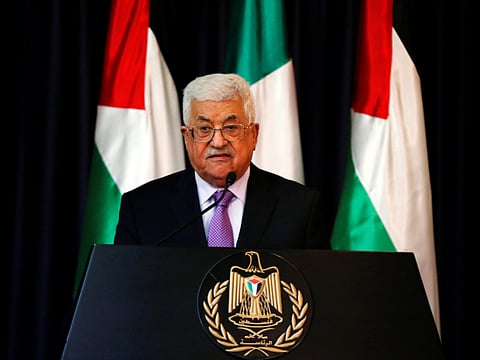Palestinian cause pushed to back-burner
Palestine remains the only land on earth that is still occupied. Yet, no one bothers about this — as if the world is happy with this ‘achievement’

Is Palestine no longer a part of Arab conscience? Have the Arabs betrayed Palestine and its people? Many questions linger on one’s mind while contemplating the region’s overall dark picture and watching daily news of destruction and killings in Iraq, Syria, Libya and Yemen on television screens and social media platforms.
Palestine, which was once, and is supposed to be the central issue for the Arab nation, is getting far away and is absent from the Arab political landscape. Earlier, all Palestine-related news and stories about its people used to be the lead on the front pages of most Arabic daily newspapers and the No 1 television news channels. Today, Palestine is rarely mentioned in news bulletins or news flashes. Breaking news on Palestine is now relegated to the inner pages of newspapers after having dominated the print and visual media for long.
Despite all that, and the overall gloomy picture of the Arab region, the Palestinian people are still struggling to regain their rights. With more than 150,000 martyrs, they have managed to keep the Palestinian cause alive in spite of the passage of 70 years since the Israeli occupation. At the official level, the new priorities of Arab governments have pushed the Palestinian cause to the bottom of the Arab agenda. After the end of colonialism in the world, Palestine remains the only land on the earth that is still occupied. However, no one bothers about this — as if the world is happy with this ‘achievement’!
So what is the solution?
Many United Nations resolutions have been issued since the 1948 occupation of Palestine. Even the Arabs themselves made a lot of concessions to solve the Palestinian crisis, among which is the Arab Peace Initiative based on the two-state solution — a peace formula that was strongly rejected by the Arabs in the first three decades after the occupation of Palestinian Territories. This is apart of the Oslo Agreements signed between the Palestinians and Israelis.
This leads us to another question: Will the Israelis now accept the two-state solution on Palestine? Although this solution has generated momentous international support and is strongly supported by the current Palestinian political leadership, many have cast doubts about the possibility of realising it on the ground. There is a sharp divide between regional and international powers over this formula. Meanwhile, the majority of Palestinians believe that the one-state solution is better for the two parties. It clearly seems that the one-state solution will be approved after years from now.
Most recently, United States President Barack Obama visited Israel to offer condolences on the death of former Israeli prime minister Shimon Peres. Obama knows that the peace process was buried with Peres, especially since the Arab world is no longer what it was before, and is now at a crossroads.
Does Palestinian President Mahmoud Abbas, who shed tears on Peres’ death, know that there is no chance for peace with Israelis — now or in the foreseeable future? The same scene was seen in November 1995 when the world leaders got together to pay tributes to former Israeli prime minister Yitzhak Rabin, who was assassinated by Israeli student Yigal Amir who had strenuously opposed Rabin’s signing of the Oslo Accords.
Former US president Bill Clinton participated in the funeral of Rabin. On that day, Clinton delivered paid his respects to Rabin. “Look at all those leaders who came from all over the world for the sake of peace”, Clinton said at the funeral. He said so even though he knew that the peace process had been buried with Rabin.
Why do the Arabs renew their belief in the already dead peace process? Why do they still believe in feeding this dead body with a fake vaccine? Do the Arabs have a psychological preparedness to accept colonialism? This is what famous Algerian Islamic thinker and philosopher Malek Bennabi said: If proven that the Arabs really accept foreign colonial power, are we witnessing today a new Arab phenomenon about generating ideas from illusions that do not exist, except in the minds of dreamers?
Do we dream while wondering whether the Arab world will manage to liberate Palestine before the middle of the third Millennium, and liberate the world from the last instance of occupation?
Mohammad Hassan Al Harbi is a renowned columnist and author whose writings cover various fields ranging from media studies to education.


